Long before the Vancouver Film School occupied the building at East Pender and Columbia Streets, there was a railway station that was later repurposed into the legendary Marco Polo restaurant.
Story from Vancouver Exposed: Searching for the City’s Hidden History
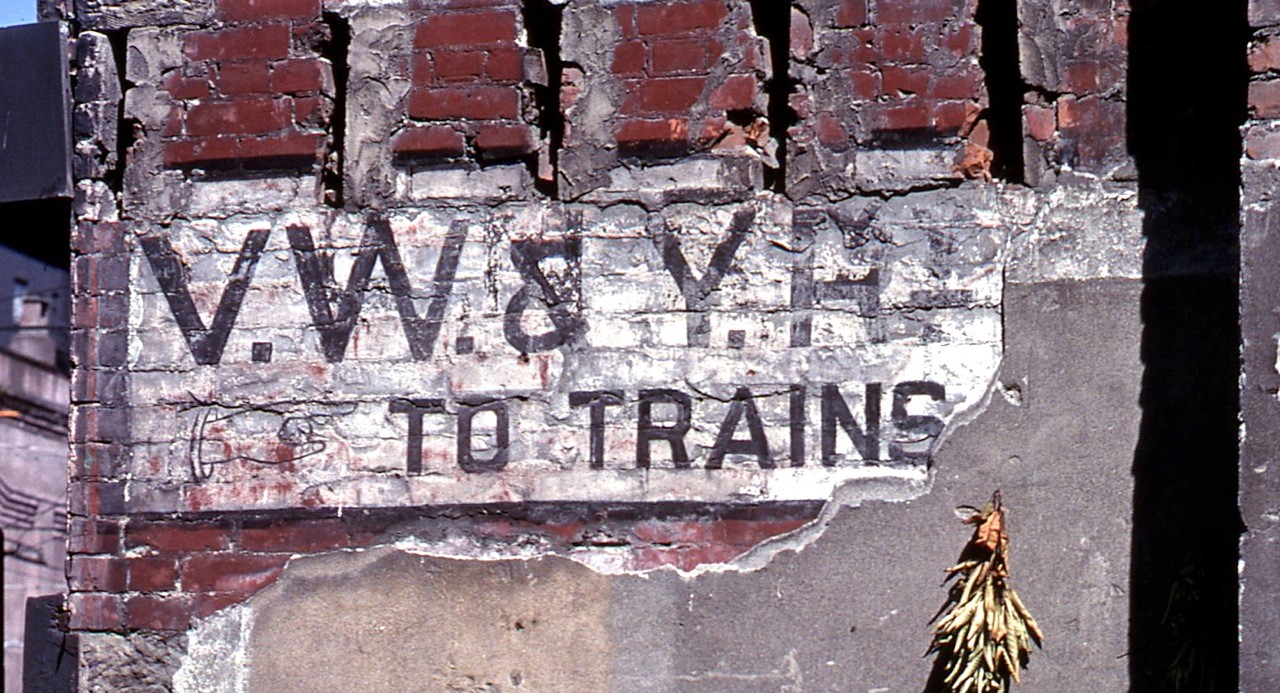
Train Station:
If you’re walking around Chinatown, you’ll likely notice the four-storey brick building at the corner of East Pender and Columbia Streets, now home to the Vancouver Film School. But if you were to take a stroll down the 100 block of East Pender in the early years of the 20th Century, you would actually be on busy Dupont Street and you’d find visitors from the U.S. disembarking at the Vancouver, Westminster and Yukon Rail depot.

Several hundred people came to see the first fast train leave for Seattle on March 20, 1905 and cross the new trestle bridge that connected the north and south sides of False Creek. The last train left on May 31, 1917 and the building turned into the Hu Ye Restaurant and later the Forbidden City. The last and most famous tenant was the Marco Polo Restaurant.
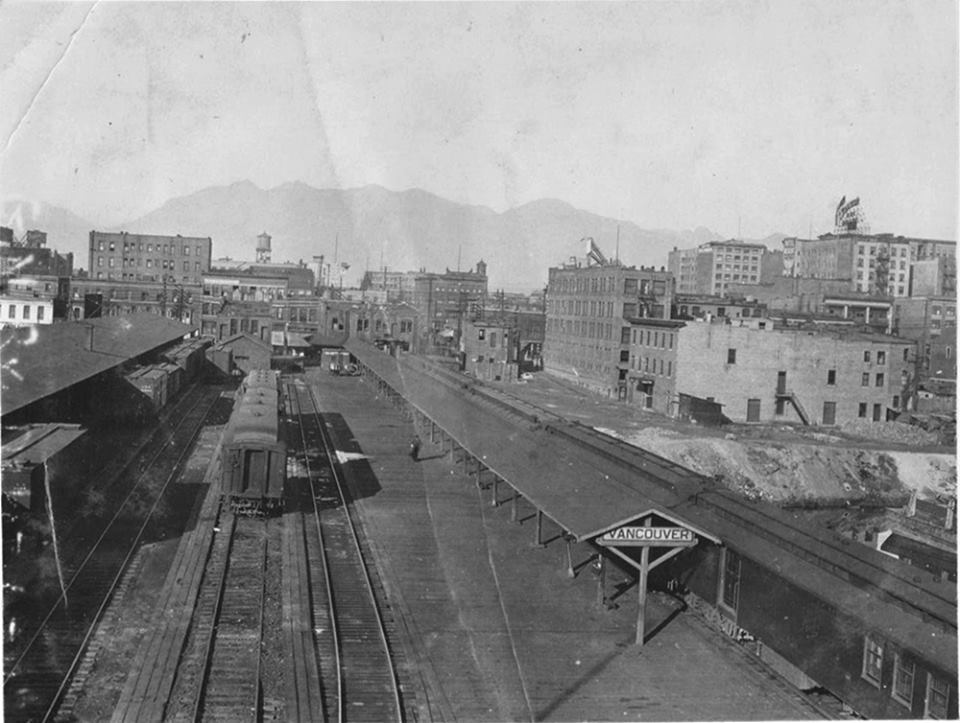
The Ghost Sign:
Before the building could be destroyed in 1983, heritage advocate Arthur Irving made a deal with the demolition crew and pried 88 bricks off the wall that still had the original railway sign VW&Y To Trains printed in black letters. He had the bricks mounted in a box to preserve them, and in doing so, saved one of the few pieces that remain of the Vancouver Westminster and Yukon Railway that operated between 1904 and 1908.
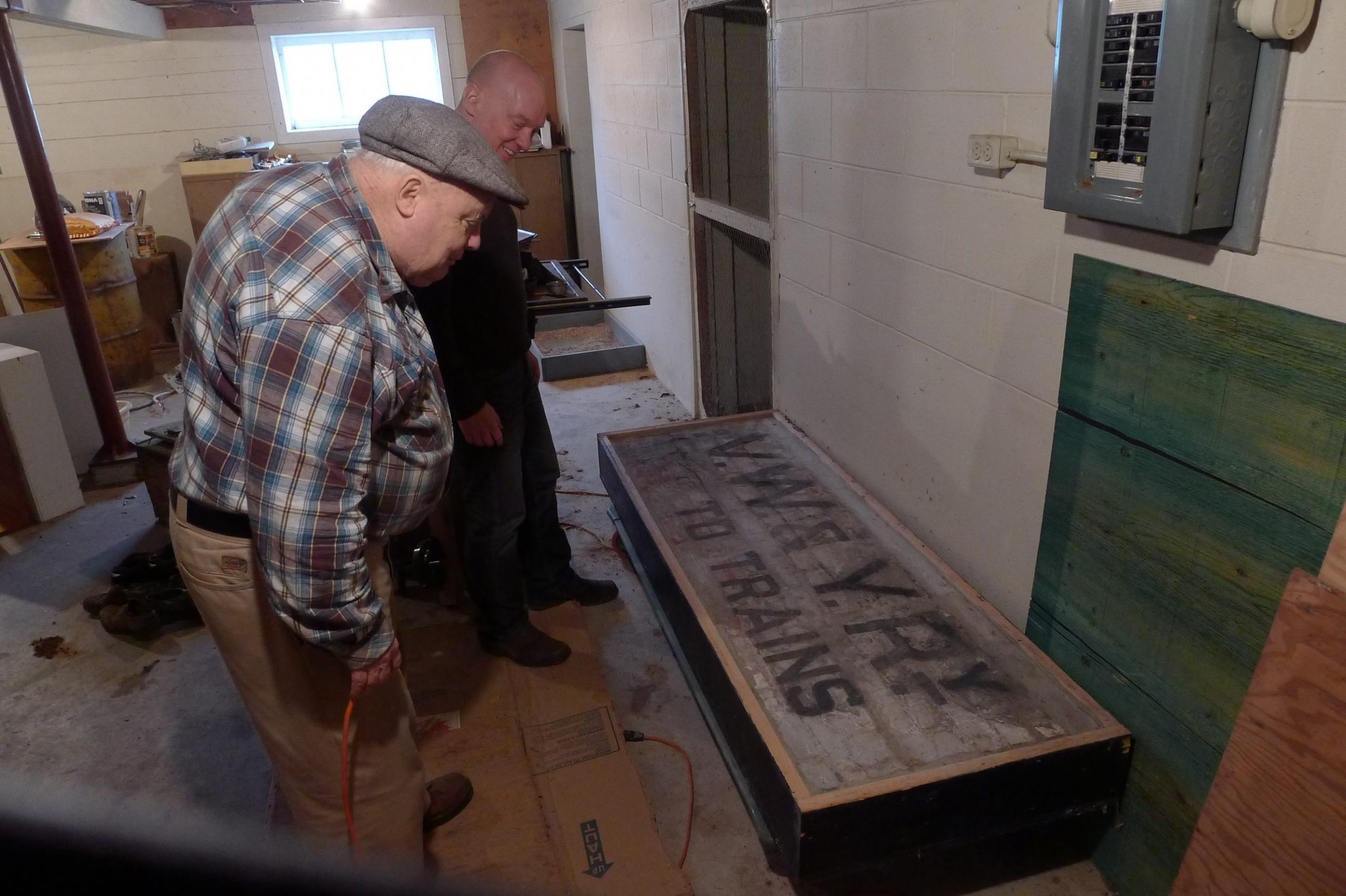
After Arthur died in 2018, Tom was helping to clear out his house when he came across the sign and the blueprints for the Great Northern Station built in 1919. “We found them in Arthur’s basement, in a bathtub salvaged from the 1916 Hotel Vancouver,” says Tom.
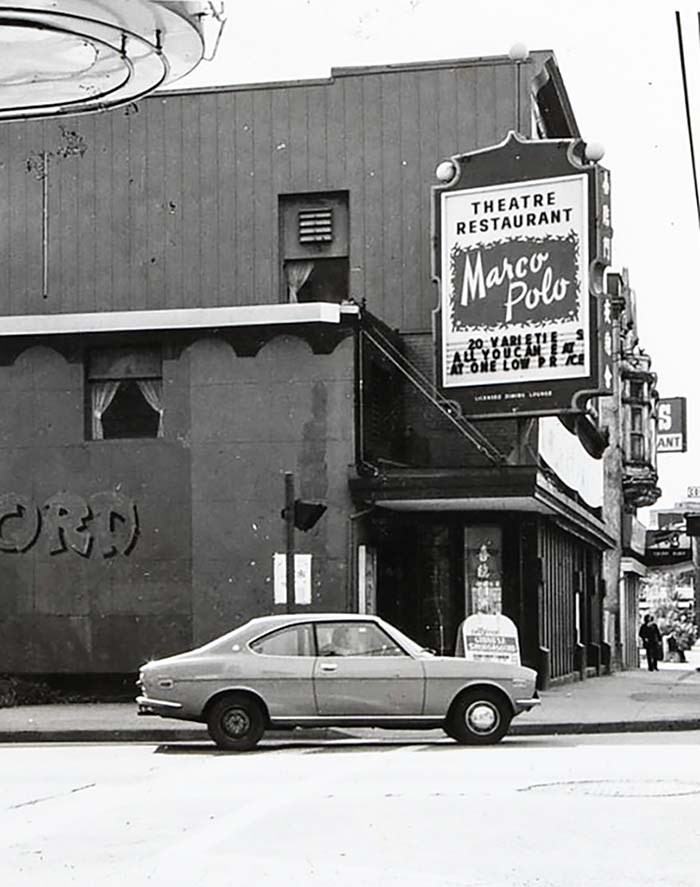
The brick sign and the blueprints are with the West Coast Railway Association in Squamish. The bathtub is in Arthur’s next-door neighbour’s garden.
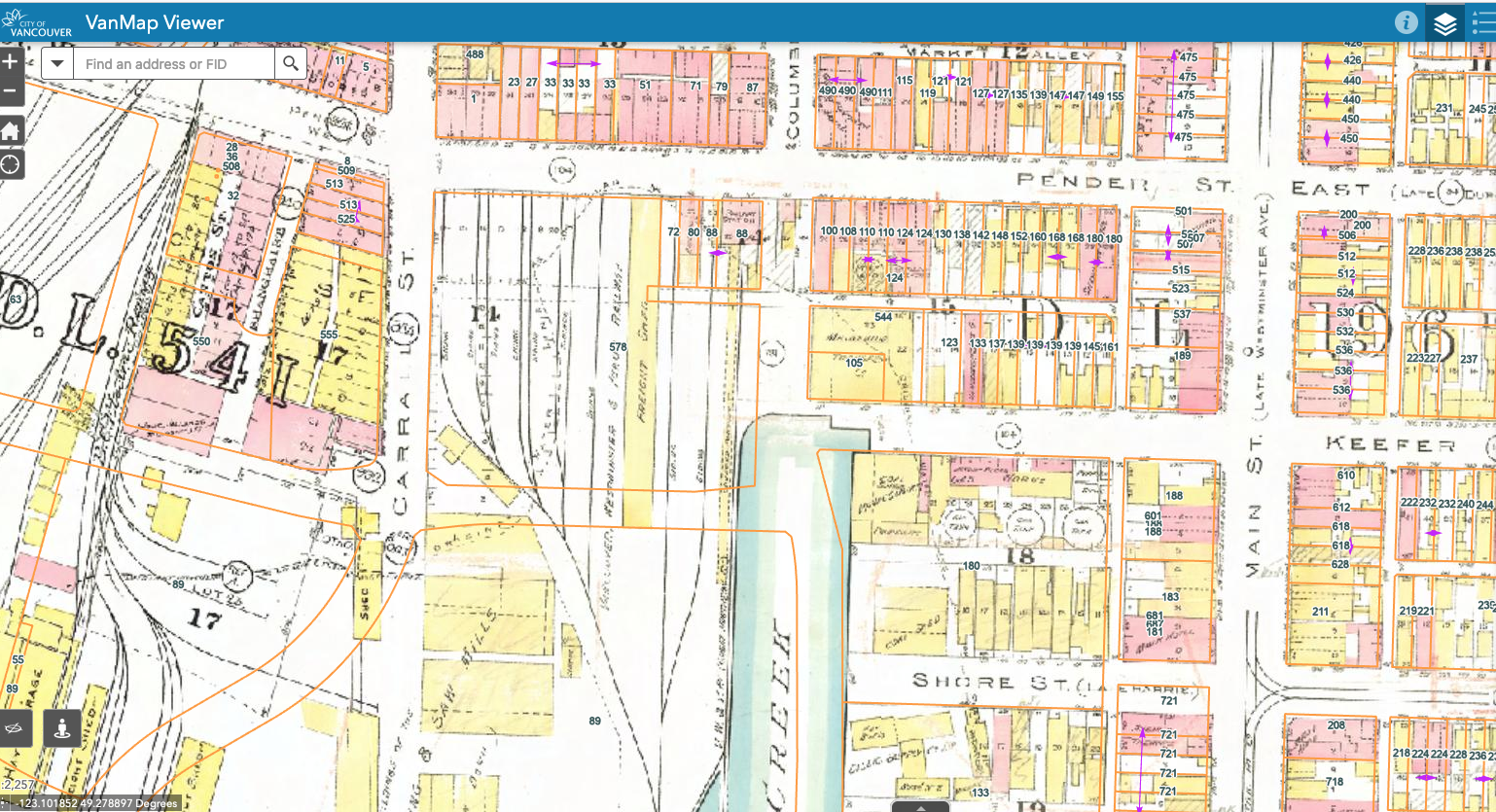
© Eve Lazarus, 2022
Related:




27 comments on “The Dupont Street Train Station and the Marco Polo Restaurant”
An amazing story! I love it. How marvelous that people take photos and keep memorabilia from the past. I love stories like this. I’ve never heard of the VWYR railway depot. Thanks for sharing it.
So pleased you enjoyed the story. As often happens, it starts with the photo!
Thanks for this. I recall exchanging messages about the sign and the station a few years ago with Michael Kluckner. I don’t think he knew about the fate of the sign. There’s just so much of Vancouver I missed by not moving here until 1987…
Very interesting, enjoyed it !! Thank you for the history lesson.
Thank you! Glad you enjoyed it
Thank you for sharing. Vancouver is my hometown and I love all your stories.
Thank you so much for taking the time to comment!
I love your history lessons of Vancouver. Thank you.
Thanks for following!
I’m completely astounded there was a train station there.Thanks,I just love learning new facts.
I was quite surprised as well!
Somewhere nearby there used to be a tram turnaround station. Back when trams operated on DTES
Your history lessons and photos are much appreciated. Many thanks!
Thanks so much!
As a former history teacher and co-ordinator of school athletics in North Vancouver and now a local sports historian and author, I just love stories of long-lost photos and other items that bring the past to life. So thank you for bringing this to light. (Eve, you may remember that we were both winners for our books at the District of North Vancouver’s Heritage Awards in, I believe, 2014.)
Hi Len! I do. Thanks for the comment, and I hope life is treating you well.
I remember seeing that ghost sign for a few years after I moved here in ’79 and I don’t know why I didn’t have the presence of mind to get a few shots of it…
Can’t tell you how many times I’ve thought the same thing about various parts of Vancouver in the ’80s
Two big concrete piers of the VW & YR railway bridge existed at the east shore of False Creek until around 1983 when they were demolished and the area filled in to build Science World dome today. The VW&YR trains crossed Main Street near where the Midas Muffler shop is today to connect with the Great Northern tracks and went east on the Grandview Cut to go onto the USA.
Thanks for the add to the story Anthony!
Hi Eve
I love your stories and pics on Vancouver.I was born here and have read so much about Vancouver and the rich history of railroads.my wife pointed out a pic you posted a few years ago of the Royal Hudson crossing Broadway at Arbutus,it has so much sentimental value as my dad worked at Magavins bakery and that was my neighbour hood I grew up in. I met Angus McIntyre and he made a print of that photo now on my wall.
Thank you for your articles awesome
Chris
Thanks so much Chris. I’m so pleased you like the stories and much appreciate the shout-out!
Amazing, I always thought Skytrain should have had a station in Chinatown.
Thank you again for the most interesting part of our history. I did not know about the station. Thanks so much for sharing
My pleasure, glad you enjoyed the post!
This one really had me scratching my head and looking at old maps.
I knew that there were trams and rail line running from Yaletown to the north end of Columbia Street, but I had never heard of the Dupont Street Station. It must have been quite short-lived.
I did find one 1928 map (https://sunnvancouver.files.wordpress.com/2011/02/streetcars1920s.jpg) that shows a former rail line running south on Columbia Street until First Street before heading east. The ‘new’ Union Great Northern station opened in 1917 or 1918 and the Dupont Street Station must have been abandoned soon after.
Check the Goad’s map of 1912 – it’s online and has a very detailed view of the station and the tracks, and I’ve added that slice of the city to the post. The last train left on May 31, 1917 – and yes because the new station opened